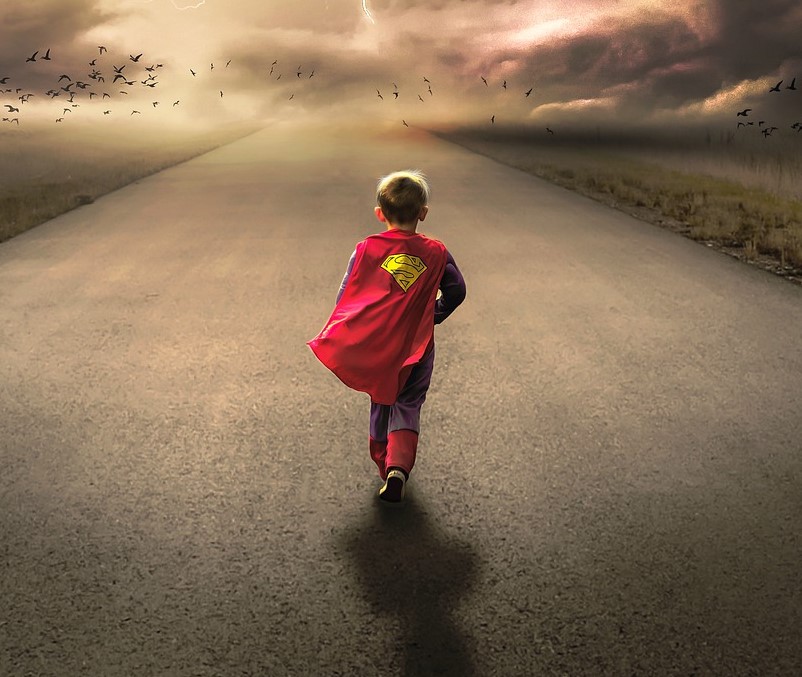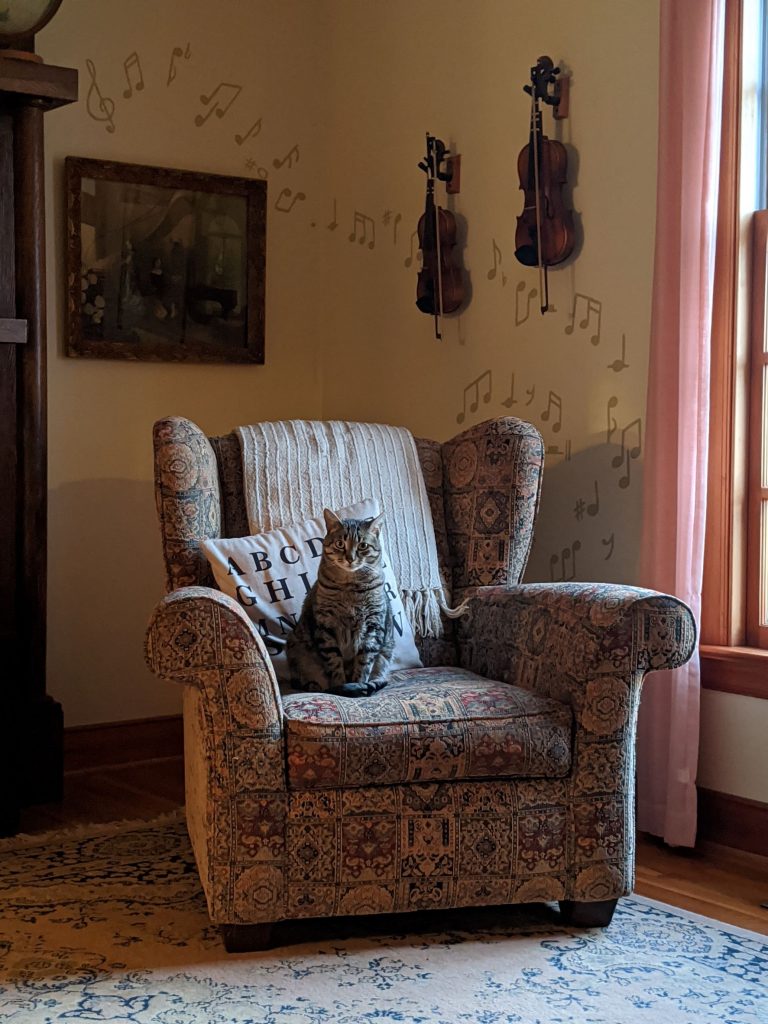
The first time you asked about it, I was tracing the patterns of the stars for you. How do you know all this?
We’d gone stargazing together before, but up until then you’d never questioned why I could name all the constellations we could see from here, why I knew their shapes and their history, why I could tell you about the ones that weren’t there, too (too cloudy, too polluted, too Southern Hemisphere).
I shrugged, as best as I could with our backs on the picnic blanket (mostly there to protect your white dress from grass stains). ‘I like maps,’ I said, off-handedly as if you weren’t about to touch on one of the cornerstones of Who is Katie Miller?
And then you turned your head, your full attention, towards me. Tell me about maps, you said.
So I did.
I told you that my father was a truck driver when I was little. (Well, my whole life, really. He only stopped about five years back when his vision started getting worse and he got too tired to do the long hauls, but anyway.) By the time I was four he’d worked at the company so long (being mates with his boss helped, too) that they gave him weekends off – ‘Spend some time with the little ones, eh Bill?’ – and that’s when he started taking me for drives as well.
I told you about the first time: five years old (just under, but who was counting?), sitting in the front seat, radio blaring with dad’s favourites, with a directory almost as big as I was resting in my lap.
‘Should learn to read that,’ he said to me. He’d put one of his old, faded caps on my head – it was summer, and he didn’t want me getting burnt through the windshield – and I had to push the rim up so I could see. ‘Reckon you can do anything if you can read a map.’
I remember hefting it open to a page about halfway through and tracing my fingers along the lines – main streets, side streets, roundabouts and cul-de-sacs. Here was our town – at not-quite-five, my whole world – held in my hands. I felt like I’d just unlocked the secrets of the universe, and that’s when it started.
I told you how I learnt to read through street names, keys and legends, the notes inside the covers. I devoured that directory like other kids did a favourite series. And then, once I was done, I moved onto a world map – mum and dad bought me a big one; stuck it to the wall beside my bed.
I told you how it developed over time, this passion. How it took up residence in every part of my life. I aced geography in primary school, but struggled with other subjects, until I started to think of things as maps. Science was the next thing – astronomy especially, I moved onto constellations and space at some point (but you know that already), and then biology. Anatomy. I like to think of bodies as maps too.
I explained it to you, how each system works together – respiratory, circulatory, skeletal – they’re different tracks running alongside each other in one greater area. You have the heart, the busy centre. Everything spreads out from there. Each part has a role in keeping your body – your town – running. It’s like transportation: street and train tracks, veins and bones. They’re the same, in my mind.
And you never just have one town, alone. You have to have others – they’re separate, distinct, but they’re similar. They work in the same ways.
(And this is where I took your hand, I think).
I told you this: we’re all towns and cities, the way I see it. Greater than the sum of our parts; made up of countless smaller sections, but we connect. I like how our city limits touch when we brush hands, and we make a bigger community. I like how we can make a street directory when we’re close.
And when I was done, I remember feeling like I hadn’t stopped talking in years. I’d just explained my odd, life-long obsession to you in the middle of an empty park, and I blushed when I realised that you’d probably look at me differently, from then on. With that insulting, confused side-glance I always got whenever I talked about the difference between streets and lanes and avenues for too long.
But you just smiled. And you squeezed my hand. And you said, I like whatever city makes up your mind.
We laughed ourselves to tears after that, and I still can’t explain why, but…
‘You know,’ I said, when we could both breathe again, ‘I think you’re the first person who hasn’t looked at me like I’m nuts when I’ve told them this.’
‘Do you tell a lot of people your long-winded backstory?’
I winced, then, looking at the time; the sky above us had darkened further since I’d started, and you laughed again. You elbowed me gently in the ribs. Only teasing.
You looked up; shook your head. ‘No, I… I don’t think you’re nuts. I think it’s a lot easier to understand the world through the frame of something you’re familiar with.’ You smiled at me – just slightly. ‘Art shapes the way I see things, too.’
‘I think it’s only fair you tell me about it.’
The night breeze rustled the grass around us, and you shivered. ‘Maybe another night,’ you said. ‘I didn’t bring a jacket.’
Then you stood, offered me a hand to stand and clean up, and you took me home.
It was summer when you finally told me, in the middle of the day. We drove out to the beach, to the cliffs overhanging them, because you wanted to paint the horizon. Your apron was blue and paint-speckled, a little piece of every work you’d done, with Jessica painted in cursive across the front. ‘I put my name on all my aprons,’ you told me. ‘If I don’t, someone else might try to take it. My apron’s part of my process. It’d be like stealing a painting.’
You were fussing over what yellow-to-white ratio you needed for the base colour of the sand when I brought it up, and you stopped what you were doing, blinked, tilted your head.
‘Oh’, you said. ‘I almost forgot about that.’
I remember that you tried to brush it off – ‘It’s not as interesting as the way you see things, really’ – and I laughed; told you to just spit it out. You stuck your tongue out at me through smiling teeth, but you told me anyway.
You said it was just about people, wasn’t as large-scale as my universe of maps, but that you thought of everyone as an artwork and an artist in turn.
‘It’s not just about seeing the beauty in everyone, or whatever. That’s not really what I mean – though I’m not saying it’s not true – but it’s more like…’
Paintings. Everyone is a painting, and a painter. We’re all canvases with our base coats down – our personalities, our interests, what makes us who we are – and when we talk to each other, when we let ourselves open up, a little bit of our paint bleeds together. We are influenced by every person we meet, every person we get close to.
‘It’s like what you said about building a community together. Our connections with other people change us. Just a bit.’
I sat back and thought about that – about the great smear of paint down the middle of my canvas that my dad would’ve put there when he gave me that book of road maps. About the red pricks of shame that must cover me like chickenpox from all the kids who sneered at me for being weird. I wondered what kind of mark you had left behind, and how that would change me.
I remember that the first thing I said, rather than any of that, was ‘Do you have synaesthesia? Thinking of people as colours?’
You stopped and tilted your head. ‘Never thought about it. Does it even work like that?’
I shrugged. The second thing I asked was ‘What colour am I, then?’
You told me ‘A rainbow’ with a teasing tilt to your lips, and I threw my jacket at your legs while we both laughed.
Your feet were dripping onto the car floor when we finally called it a day – you’d insisted on going down to the beach and you waded in too deep; your skirt was damp at the hem – and I knew there’d be sand in there for weeks to come, but when had that ever stopped anyone?
You tucked your legs up onto the seat and turned to look at me. ‘I wasn’t entirely joking, you know,’ you said. ‘You don’t have one solid colour. No one does, when you get to know them. You’re like… a palette of earthy colours.’
I looked at you, and I could see what you meant. You weren’t just one colour to me, either – more a mixture of pale colours, but that might’ve been because that’s what you liked to wear.
I wondered if that would change, over time. If our city limits would link together and our colours would blend.
I see you, now, wearing my jackets and jumpers, deep browns over your pale pinks and whites and yellows. I see the map on our wall, and the watercolours that tint it. I see Katie and Jess painted on it in your cursive so no one else will take it. I see our limits and our colours together. I see our space; our home.
Our little world of mixed metaphors.








